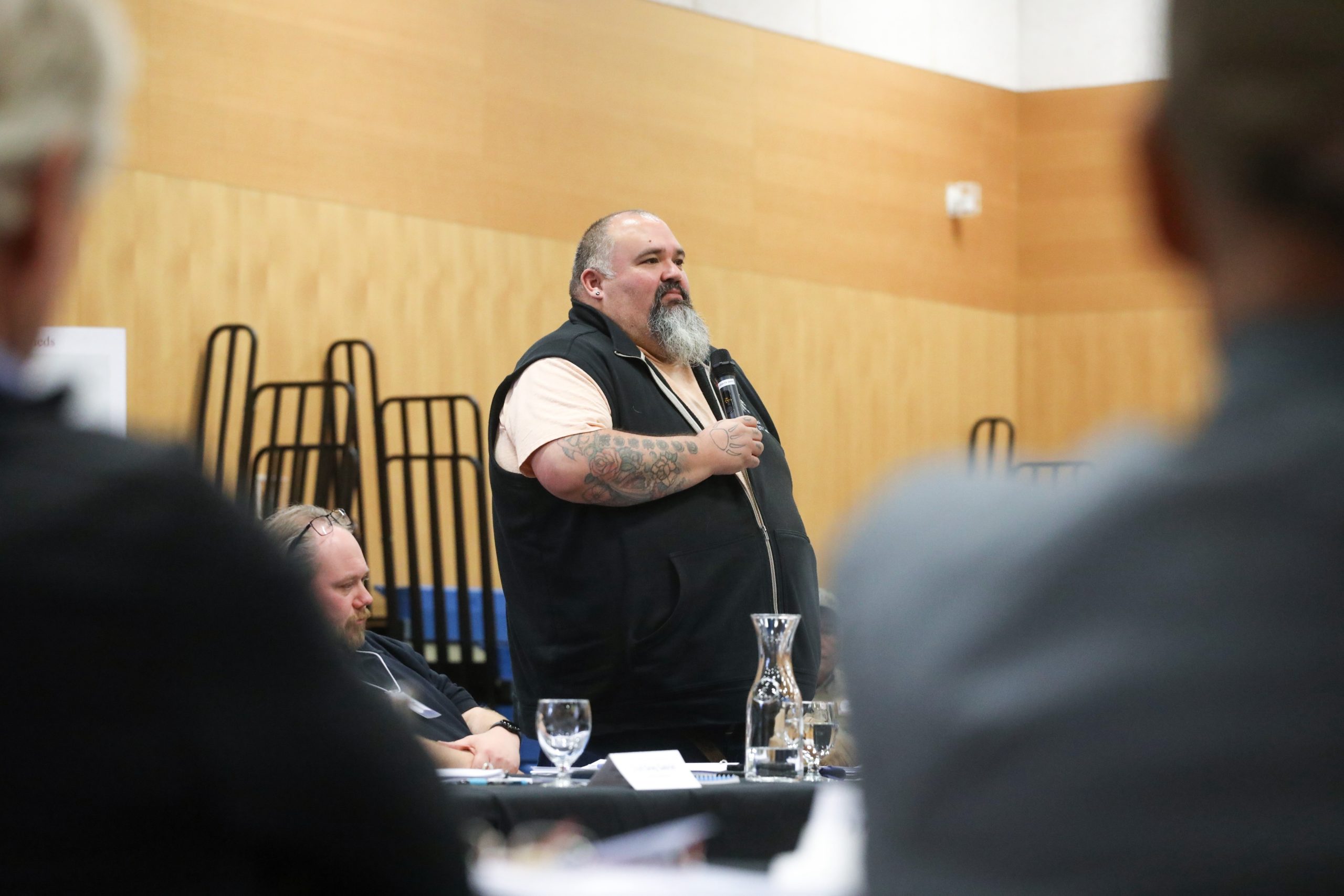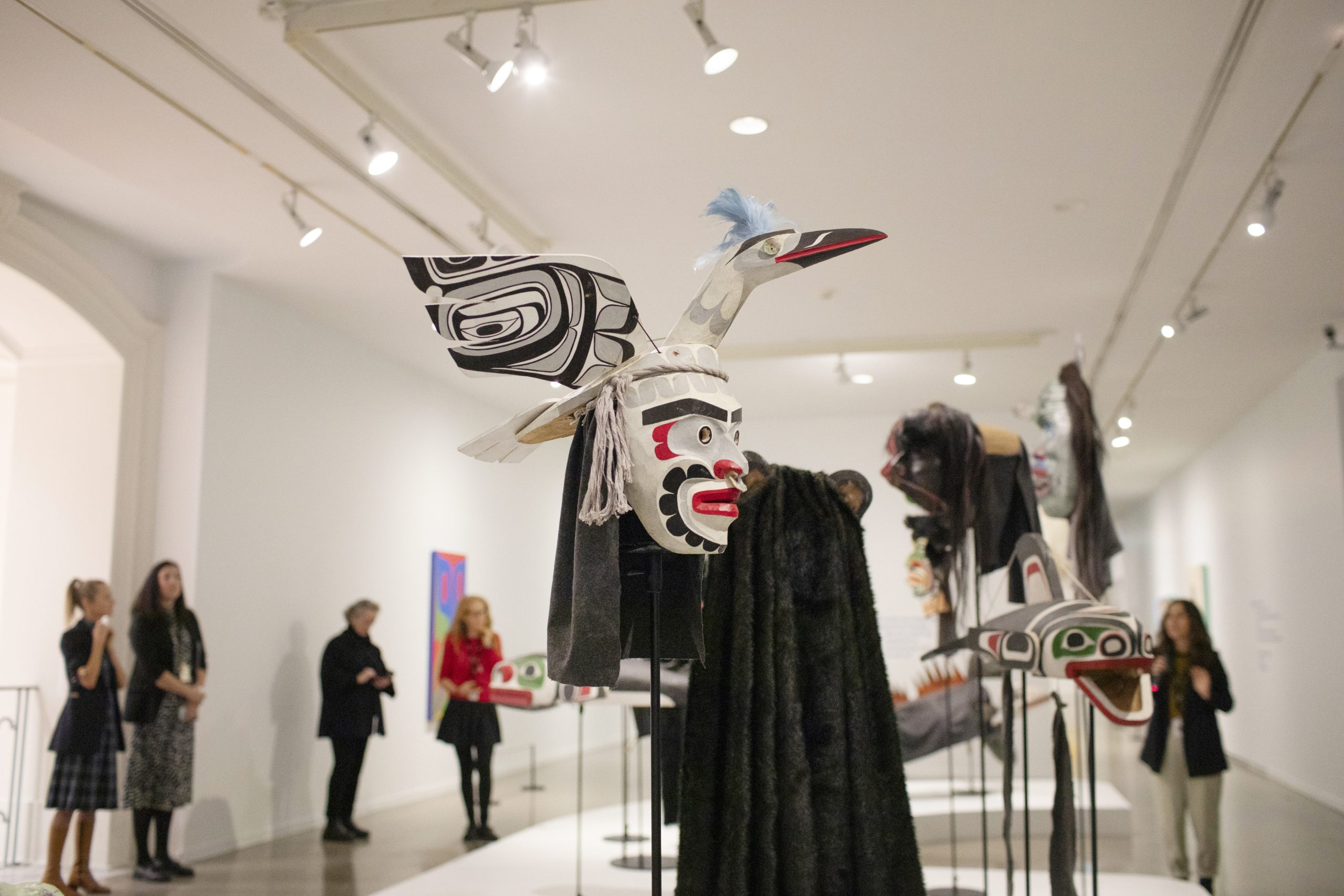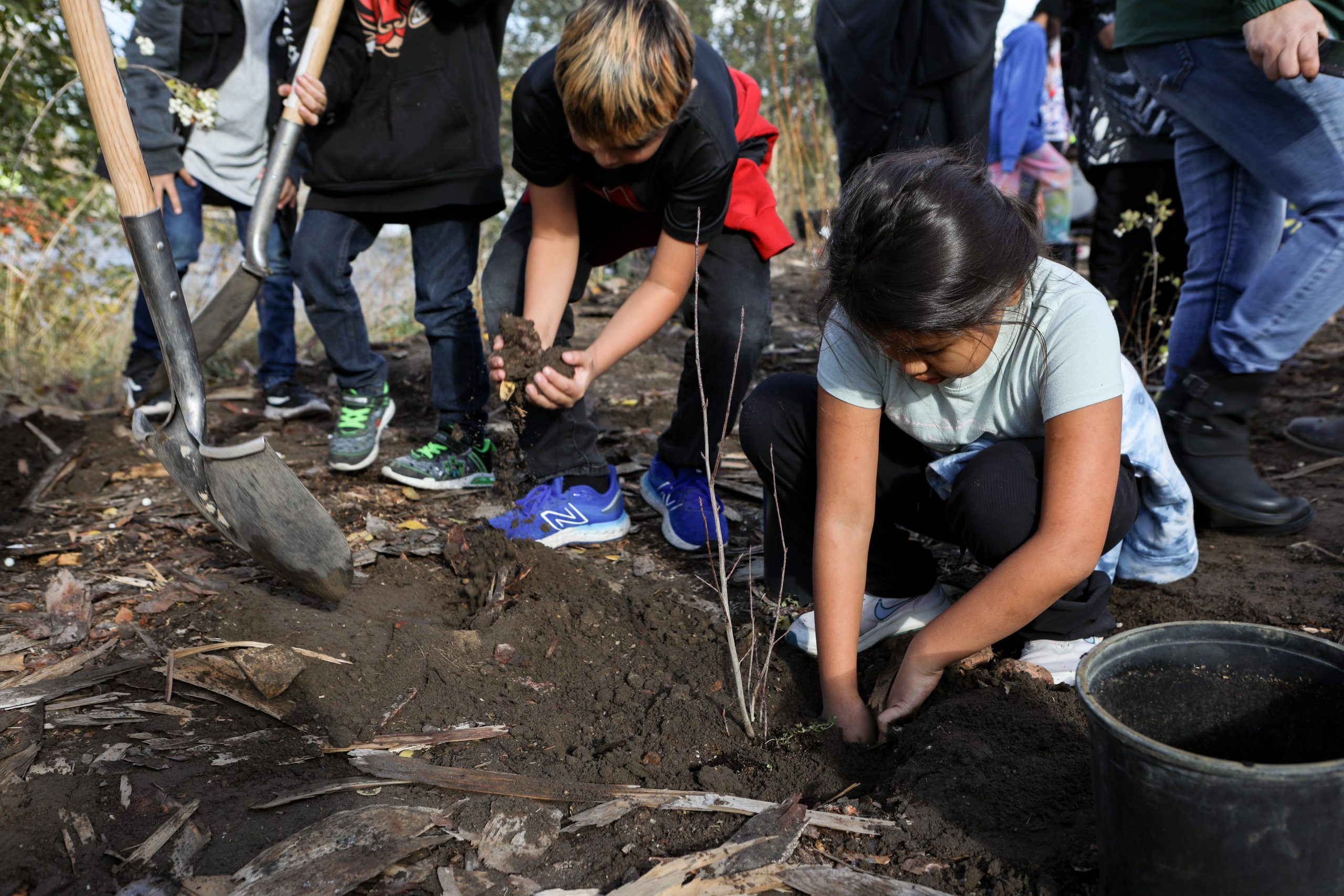A century after their village was burned, Sḵwx̱wú7mesh is rebuilding Sen̓áḵw
Construction has started on the 11-tower development on reserve lands after the nation received a historic $1.4-billion loan from CMHC


After receiving a record-breaking $1.4-billion loan from the federal government, the Sḵwx̱wú7mesh Úxwumixw (Squamish Nation) is moving forward with developing its housing project Sen̓áḵw.
The project represents a reclamation for the community, as the site was historically an abundant village, utilized for fishing, hunting and harvesting and as a summertime gathering place. The name Sen̓áḵw refers to the location of the village and how it’s inside of the head of the inlet, or “False Creek.”
In 1913, families were forcibly removed from Sen̓áḵw by colonizers and the village was destroyed, explained Wilson Williams, Sxwíxwtn, spokesperson and elected Sḵwx̱wú7mesh councillor.
“Since 1886, land started to become expropriated from our nation and our families,” he said.
“So, slowly, land was chipped away and in 1913 we were forced on a barge and the village burned down because the government burned the last houses.”
After decades of advocating for the land’s return, the community will again establish itself in Sen̓áḵw as construction is underway on its 11-tower development project that will feature Coast Salish design sprawled across ten acres of reserve lands.

Sḵwx̱wú7mesh Úxwumixw Council Chairperson Khelsilem said the project will build needed rental apartments within “Vancouver” and support citizens of the nation long-term. Sen̓áḵw’s first residents are expected to be able to move in as soon as 2025.
“The wealth generated from these lands can then be recirculated into our local economies and communities to address our people’s urgent needs for affordable housing, education, and social services,” he said.
Largest loan in CMHC history
The $1.4-billion loan from the Canada Mortgage and Housing Corporation (CMHC) is the largest in the Crown Corporation’s history and will support the development of 3,000 rental units in the first two phases of the four-phase project.
Sen̓áḵw will create 6,000 homes in “metro Vancouver” at the south end of the “Burrard Bridge” with about 20 per cent of the units — or 1,200 — will be “affordable” rentals.
The loan was announced during a groundbreaking ceremony at the site on Sept. 6 where Prime Minister Justin Trudeau was present. Sḵwx̱wú7mesh also held a blessing ceremony at the site in mid-August and construction is now underway.
“The Sḵwx̱wú7mesh Úxwumixw and the federal government’s partnership to support the residential development of Sen̓áḵw is a historic moment in Canada’s relationship with Indigenous communities,” said Khelsilem.
The project will support the Sḵwx̱wú7mesh Úxwumixw and their citizens through money generated by the project and also by providing units in Sen̓áḵw to people from the nation, Williams said.
A service agreement between Sḵwx̱wú7mesh Úxwumixw and the City of Vancouver was also signed in May that will connect the development to city water and storm sewer services and upgrade infrastructure.
The project will be completed in four phases aimed at addressing housing in “Vancouver” as well as the economic independence and security of the Sḵwx̱wú7mesh Úxwumixw.
The first two phases will see the completion of 3,000 units with 20 per cent being affordable rental units. These projections will be the same for phases three and four. The service agreement also states there will be 65 to 75 childcare spaces within Sen̓áḵw.

The mixed-use project is being developed by Nch’ḵay̓ West — a partnership between Nch’ḵay̓ (Sḵwx̱wú7mesh Úxwumixw economic development arm) and Westbank Project Corp.
Sen̓áḵw never forgotten
While Sen̓áḵw is seeing great strides in the last few months, this project is actually years in the making.
After their ancestors were forced from the land, Sḵwx̱wú7mesh Úxwumixw leadership never forgot about their village site and in the 1960s, they started the work for an Omnibus Trust Action that was brought forward in 1977 against the “Canadian” government. In 2003, a portion of the reserve lands were returned to the nation as the result of a federal court ruling.
“80 acres was taken and we got 10.48 acres back of the total Sen̓áḵw village,” said Williams.

Since the announcement of Sen̓áḵw in 2019, however, affluent residents of the “Kitsilano” neighbourhood are opposing what they say is a lack of consultation on the project. In particular, some residents are rallying against a service road planned to cut through “Vanier Park” as part of the development plan.
“With the overwhelming support of our Squamish People, the Sen̓áḵw development will generate enormous wealth for our community and see the return of Squamish People to our village that past Canadian governments forcibly evicted us from,” said Williams in a statement.
He added that the project is supported by about 85 per cent of Sḵwx̱wú7mesh Úxwumixw citizens.
“Everyone should have a safe place to call home,” said Trudeau during the CMHC loan announcement.
“Today’s announcement not only builds more much-needed homes for Vancouverites, it supports the Sḵwx̱wú7mesh Úxwumixw’s vision for their traditional lands and their path to continued economic independence and self-determination.”
The $1.4 billion loan will be through the Rental Construction Financing Initiative which gives low-interest loans to sustainable rental projects in “Canada” as part of the Canada National Housing Strategy.
Author
Latest Stories
-
With habitat affected by wildfires, syilx-led program monitors rattlesnakes
The Nk’Mip Desert Cultural Centre has received new federal funding to continue its research on how the snakes are adapting to a changing environment
-
At the Salish School of Spokane, a community of n̓səl̓xčin̓ speakers is built
Students ages one to 13 are immersed in the Colville-Okanagan Salish language — learning alongside their teachers and families












